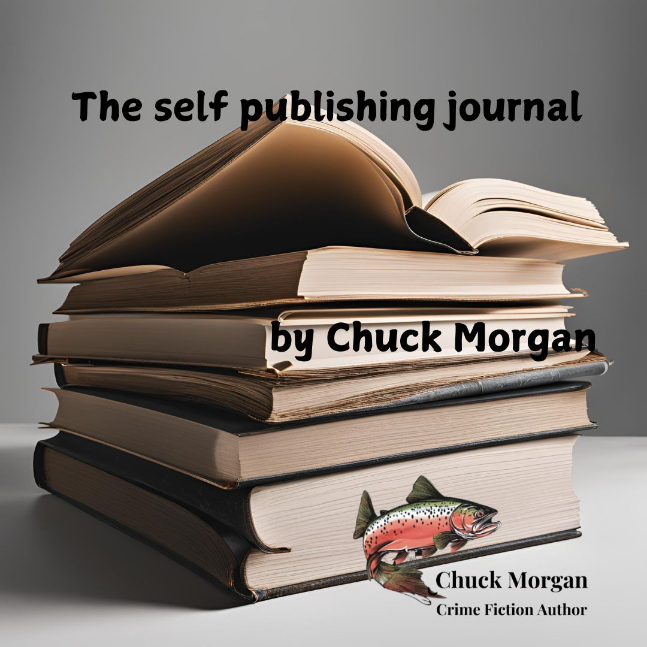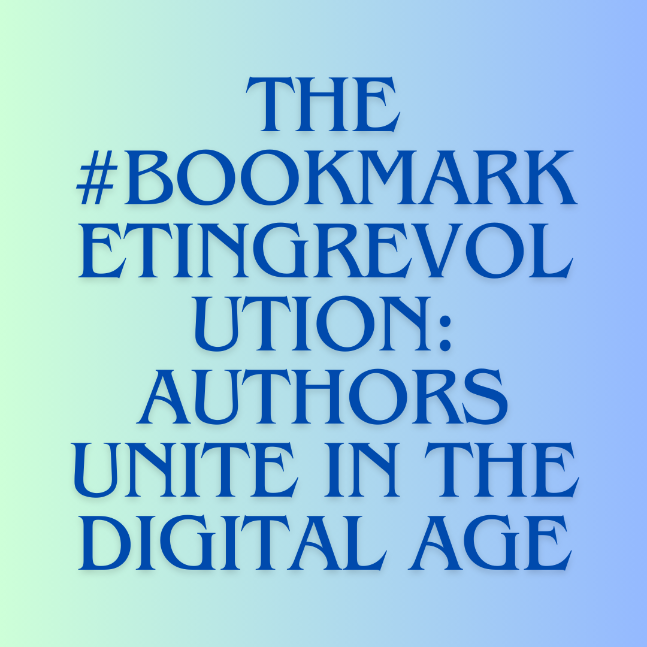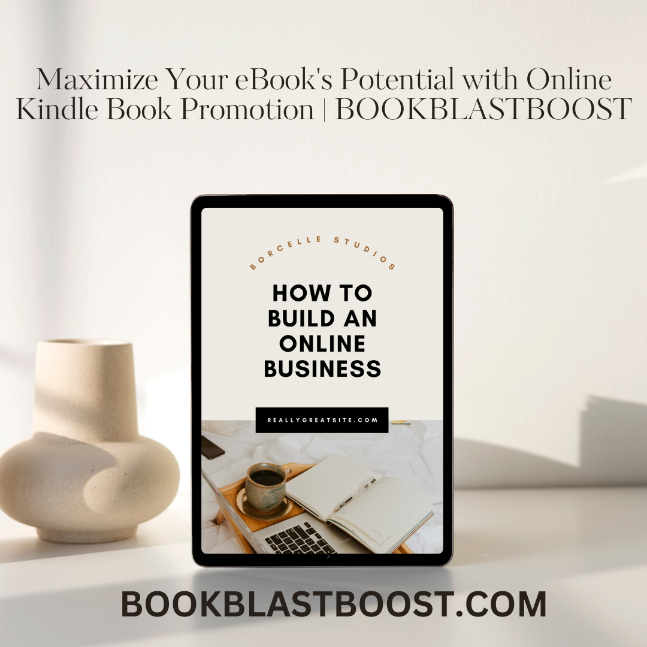How Can Book Reviews Propel Your Self-Published Fiction To New Heights?

How Can Book Reviews Propel Your Self-Published Fiction To New Heights?
Chuck Morgan Crime Fiction Author
It's imperative for you as a self-published author to understand the impact of book reviews on your fiction's success. Positive reviews can significantly enhance your visibility and credibility, drawing in potential readers who rely on the opinions of others. In this post, we’ll explore how you can leverage reviews to build a strong reputation and ultimately boost your sales, helping your literary work reach new audiences and achieve greater recognition. Your self-publishing journey can thrive with the right strategies for cultivating and using book reviews effectively.
The Importance of Book Reviews
The significance of book reviews in the self-publishing realm cannot be understated. They serve as social proof, helping to validate your work in the eyes of potential readers. When someone encounters a positive review, it can reassure them of your book's quality and entice them to give it a chance, ultimately assisting you in reaching a wider audience and achieving greater success.
Building Credibility and Trust
Along with attracting readers, book reviews help you establish credibility in a saturated market. When previous readers endorse your work through honest reviews, it enhances your author's brand and makes you more trustworthy. This trust can ignite word-of-mouth promotions, where satisfied readers share your book with their circles, further expanding your reach.
Enhancing Visibility and Discoverability
Between various online platforms, having reviews of your book can significantly elevate its visibility. Search algorithms often factor in the number and quality of reviews when determining a book's ranking, making these reviews necessary for discoverability. A higher profile means more potential buyers are drawn to your self-published work, ultimately boosting your sales.
Another key element to consider is that book reviews not only impact your book’s immediate visibility but also contribute to its long-term discoverability. As readers post their thoughts on various platforms and social media channels, your book can surface in search results and recommendations, leading to ongoing interest. By consistently gathering reviews, you create a lasting impression that can continue to attract new readers long after your book's launch.
Types of Book Reviews
One of the best ways to leverage book reviews is by understanding the different types available to you:
- Professional Reviews
- Reader Reviews
- Editorial Reviews
- Peer Reviews
- Amazon and Goodreads Reviews
You can choose the type of review that best suits your self-published work for maximum impact.
| Type | Description |
| Professional Reviews | Reviews written by literature critics or established authors. |
| Reader Reviews | Reviews posted by general readers, often on platforms like Amazon and Goodreads. |
| Editorial Reviews | Reviews provided by editorial teams of book retailers or magazines. |
| Peer Reviews | Reviews from fellow indie authors or writing groups. |
| Amazon and Goodreads Reviews | Feedback from readers on e-commerce and social platforms. |
Professional Reviews
Besides gaining exposure, professional reviews lend credibility to your work. These reviews typically come from established critics who can provide insightful critiques and praises that resonate with your target audience. Having a few high-quality professional reviews can enhance your book's reputation and encourage more readers to take a chance on your writing.
Reader Reviews
To reap the benefits of reader reviews, focus on encouraging your audience to share their thoughts. These reviews can significantly influence potential readers and are often perceived as more authentic than professional critiques. Positive reader feedback can enhance your visibility, helping you attract more readers and boost your sales.
At the heart of reader reviews is their grassroots nature, making them invaluable for marketing your self-published fiction. Engaging with your audience through social media, book signings, and email newsletters can motivate readers to leave reviews. Their personal touch often resonates more with potential readers, establishing a community around your book and helping to create a buzz that propels your work forward.
Strategies to Gain Book Reviews
Any aspiring author knows that attracting book reviews is imperative for your self-published fiction. To effectively gain these reviews, consider implementing diverse strategies that resonate with your target audience. By actively seeking feedback and building relationships with readers, you can create a community eager to support your work. In this chapter, discover actionable approaches to garner those all-important reviews.
Engaging with Beta Readers
Between completing your manuscript and launching it to the public, engaging with beta readers is a beneficial step. These individuals provide valuable insights and share their opinions on your story, characters, and writing style. By nurturing these relationships, you can secure enthusiastic readers who will post reviews once your book is published.
Using Social Media and Platforms
Engaging with social media and relevant platforms can significantly expand your reach when acquiring book reviews. Establish your online presence by connecting with readers, authors, and influencers in your genre. Share insights, engage in conversations, and promote your book while inviting honest feedback. This interaction not only cultivates relationships but can also encourage readers to share reviews on their platforms, increasing your book's visibility.
To leverage social media effectively, consider joining genre-specific groups and forums where potential readers gather. Use platforms like Instagram, Facebook, and Goodreads to interact with your audience by sharing sneak peeks, discussing your writing process, and inviting opinions. Hosting giveaways or challenges where participants can receive a copy of your book in exchange for a review can also be a great way to reward reader engagement. By fostering an active presence on these platforms, you enhance your chances of garnering reviews that will propel your self-published fiction to new heights.
Crafting an Effective Review Request
To maximize your chances of receiving meaningful book reviews, it’s crucial to craft an interesting review request. This involves communicating the value of your work, providing potential reviewers with crucial details about your book, and outlining the type of feedback you seek. A well-structured request can grab attention and encourage recipients to engage with your story, ultimately leading to more impactful reviews.
Personalization and Professionalism
Above all, addressing your reviewers personally and showing professionalism can significantly enhance your request. Rather than sending out a generic template, take the time to research your potential reviewers and tailor your message to resonate with them. A personalized approach shows that you respect their opinions and are genuinely interested in their thoughts on your work.
Follow-Up Etiquette
Follow-up communications can be effective in prompting reviewers, but they must be handled with care. Ensure you balance persistence and respect by allowing a reasonable time frame before reaching out again. Your follow-up should express appreciation for their time, gently remind them of your request, and offer to provide any additional information they might need.
Understanding the importance of follow-up etiquette can enhance your relationship with book reviewers. A considerate approach reflects well on your professionalism and can make reviewers more inclined to respond and write a review. If they haven’t gotten to your book yet, your thoughtful follow-up could spark their interest, making them more eager to share their insights on your fiction.
Leveraging Reviews for Marketing
Despite the common belief that writing a great book is enough to succeed, using book reviews effectively can elevate your marketing strategy. Reviews serve as social proof that your work resonates with readers, allowing you to build authenticity around your brand. By featuring reviews prominently on your website, social media, and promotional materials, you can attract new readers and engage your audience more effectively.
Using Reviews in Promotional Material
By integrating reviews into your promotional materials, you can enhance your book's appeal by showcasing positive feedback. Consider using snippets of reviews in ads, newsletters, and on your book cover. Highlighting endorsements from respected critics or readers will not only catch the attention of potential buyers but also reinforce the quality of your work, prompting others to take a closer look.
Encouraging More Reviews
Between publishing and engaging with readers, garnering reviews can be ongoing. Actively encourage your audience to share their thoughts, whether through social media, newsletters, or book signings. Building a community centered around your work invites more conversations and increases the likelihood that readers will leave reviews, contributing to your overall credibility.
Even after the initial launch, continue to foster relationships with your readers. Engage them through thank-you notes or personalized messages when they leave a review. You can also host giveaways or contests motivating reviews, making it a fun experience for your audience. Such strategies not only encourage more feedback but also cultivate a loyal reader base eager to support your future projects.
Handling Negative Reviews
For self-published authors, negative reviews can be challenging to navigate, but they are often an inevitable part of the journey. Instead of viewing them as a setback, consider how they can provide valuable insights into your work. Each review holds the potential to enhance your writing skills and shape your future projects, so approach them with an open mind and a willingness to learn.
Constructive Criticism as a Tool for Growth
Constructive criticism serves as a powerful tool for your growth as a writer. When readers take the time to provide thoughtful feedback, it can illuminate areas where your storytelling may need improvement. Embrace these insights as opportunities to hone your craft, develop richer characters, and strengthen your narrative structure.
Responding Gracefully
Handling negative reviews gracefully shows your professionalism and willingness to engage with your audience. Instead of reacting defensively, approach the feedback with curiosity and appreciation. By acknowledging the reviewer's perspective, you show you value their opinion and are committed to growing as a writer.
It is vital to maintain a composed demeanor when addressing any negative feedback. Take a moment to process your feelings before responding, as a well-considered reply can leave a lasting impression. Thank the reviewer for their insights and ask for clarification on specific points. This not only shows your professionalism, but can also foster a connection with your audience, turning potential critics into loyal readers.
To wrap up
By leveraging the power of book reviews, you can significantly enhance your self-published fiction's visibility and credibility. Positive reviews attract potential readers but also build trust and encourage word-of-mouth recommendations. Engaging with reviewers and using their feedback can further refine your work and foster a community around your writing. Ultimately, prioritizing reviews in your marketing strategy can open doors and elevate your self-published journey to new heights.
Related posts
2024's Ultimate Guide: Top 10 Book Promotion Websites for Authors
In the ever-evolving world of book publishing, getting the right exposure for your work can be a daunting task. Thankfully, there are numerous book promotion websites designed to help authors reach their target audience more effectively. As we step into 2024, let’s explore the top 10 book promotion websites that are making waves in the literary world.
1. BookBlastBoost https://bookblastboost.com/
BookBlastBoost has emerged as a go-to platform for authors seeking comprehensive promotion services. Known for its targeted marketing strategies, the site offers various packages that cater to different needs, from social media blasts to email marketing campaigns. Its user-friendly interface and dedicated support team make it a top choice for both new and established authors.
2. WriteZenith https://writezenith.com/
WriteZenith is celebrated for its personalized approach to book promotion. The site not only helps in promoting books but also provides valuable feedback and advice on how to enhance an author’s overall marketing strategy. They specialize in creating customized promotion plans that align with the author's goals and book genre.
3. WordsRI https://wordsri.com/
Focusing on indie authors, WordsRI has built a reputation for its effective and affordable promotion services. It offers a wide range of options, including book reviews, author interviews, and social media promotion. Their commitment to supporting independent authors makes them a popular choice in the self-publishing community.
4. LitLinc https://litlinc.com/
LitLinc is known for its innovative approach to book promotion, integrating the latest digital marketing techniques. They provide a plethora of services, including SEO for author websites, blog tours, and video marketing. Their forward-thinking strategies ensure that authors stay ahead in the competitive digital landscape.
5. Readsy
Readsy has become a favorite among authors for its interactive promotion methods. They engage readers through book giveaways, interactive Q&A sessions with authors, and reader challenges. This engagement-centric approach helps in building a loyal reader base for authors.
6. NovelPromote
NovelPromote specializes in genre-specific promotion, making it an ideal platform for authors who have a clear target audience. Whether it’s romance, sci-fi, or non-fiction, they tailor their marketing efforts to attract the right readers.
7. AuthorShout
AuthorShout is recognized for its global reach. It helps authors gain international exposure by featuring their books on various international platforms. This site is perfect for authors looking to expand their reader base beyond their home country.
8. BookBuzz
BookBuzz offers a comprehensive suite of services, including press release distribution, social media management, and book launch planning. Their all-inclusive approach is great for authors who want a one-stop solution for their promotional needs.
9. The Book Promoter
The Book Promoter emphasizes on creating buzz around new releases. Their strategic pre-launch and launch campaigns are designed to maximize visibility and drive book sales right from the start.
10. E-Book Booster
E-Book Booster is the go-to site for authors who primarily publish digital formats. They focus on promoting eBooks across various platforms, including Kindle, Nook, and Kobo, ensuring a wide digital footprint for authors.
These top 10 book promotion websites of 2024 offer a variety of tools and services tailored to meet the needs of authors in today’s digital age. Whether you’re an indie author or an established writer, leveraging these platforms can significantly enhance your book's visibility and success.
The Future of Author Success: A Guide to Book Promotion Websites and Strategies in 2024
In the dynamic world of publishing, the year 2024 has brought forth a plethora of options for authors seeking to make their mark in the literary world. With the rise of digital platforms, the importance of effective book promotion strategies cannot be overstated. This article delves into the best book marketing platforms, top author promotion sites, and innovative literary marketing solutions that are shaping the future of book publicity.
1. BookBlastBoost and WriteZenith: Pioneers in Book Marketing
Two platforms that have emerged as leaders in 2024 are BookBlastBoost and WriteZenith. Catering specifically to authors, BookBlastBoost offers tailored services to maximize book visibility online, while WriteZenith specializes in holistic book marketing strategies. These sites represent the forefront of digital book promotion techniques, providing authors with the tools they need to succeed in an increasingly competitive market.
2. Effective Book Promotion Strategies: The Key to Visibility
Understanding and implementing effective book promotion strategies is crucial. In 2024, this means leveraging social media, optimizing for search engines, and engaging with readers through innovative online campaigns. Platforms like WordsRI have become essential for indie authors, offering services that cater to their unique needs. Similarly, LitLinc offers specialized book promotion services that help authors cut through the noise and reach their desired audience.
3. The Rise of Self-Publishing Marketing Websites
Self-publishing continues to gain traction, and with it, the need for dedicated marketing websites. These platforms provide self-published authors with the resources and guidance necessary to navigate the complex world of book promotion. They offer a range of services from social media marketing to email campaigns, helping authors maximize book sales online.
4. Emerging Author Promotion Platforms: A New Era of Marketing
2024 has seen the emergence of new platforms that are redefining book promotion. These emerging author promotion platforms are equipped with the latest technologies, from AI-driven marketing insights to virtual book tours, providing authors with cutting-edge tools to build their brand.
5. Online Book Marketing Trends: Staying Ahead of the Curve
To stay relevant, authors must keep abreast of online book marketing trends. This includes understanding eBook marketing strategies, utilizing video content, and engaging with readers through interactive digital platforms. The landscape of book publicity websites in 2024 is ever-evolving, and staying informed is key to an author's success.
6. Author Brand Building: More Than Just Selling Books
Finally, building a strong author brand has never been more important. In 2024, author brand building platforms offer a range of services to help authors establish a presence, connect with readers, and build a lasting career in writing. These platforms go beyond just selling books; they help authors create a legacy.
The world of book promotion in 2024 is diverse and dynamic. From BookBlastBoost's targeted promotion services to the innovative strategies of WriteZenith, authors have a wealth of resources at their disposal. By leveraging these tools and staying up-to-date with the latest trends, authors can effectively increase their book's visibility, engage with readers, and achieve success in the digital age. Whether you're an indie author or a seasoned writer, embracing these literary marketing solutions is the key to unlocking your book's potential.
AI and Books: Revolutionizing the Literary World
The advent of artificial intelligence (AI) has sparked a revolution across various industries, and the realm of books is no exception. AI's impact on literature and publishing is multifaceted, ranging from content creation to personalized reading experiences. This article explores how AI is reshaping the way books are written, published, and enjoyed.
AI in Book Writing and Content Creation
One of the most significant impacts of AI in the literary world is in the area of book writing and content creation. AI algorithms can analyze vast amounts of data, learn from literary trends, and even suggest plot ideas or character developments. Tools like predictive text and AI-driven writing assistants are helping authors overcome writer’s block, refine their narratives, and enhance their storytelling techniques.
However, this raises questions about creativity and originality. While AI can assist in the writing process, the essence of storytelling – human experiences and emotions – remains irreplaceable by machines. The debate continues as to how much influence AI should have in the creative process of writing.
AI in Editing and Publishing
Publishing houses are increasingly adopting AI tools for editing and manuscript assessment. AI can quickly analyze a manuscript for grammatical errors, style inconsistencies, and even plot coherence, significantly reducing the time and cost involved in the editing process. Additionally, AI algorithms can predict market trends and reader preferences, helping publishers make more informed decisions about which books to pursue.
Personalized Reading Experiences
AI is also transforming how readers interact with books. AI-driven recommendation systems on platforms like Amazon and Goodreads analyze user data to suggest books that align with individual preferences, enhancing the discovery of new titles and authors. Furthermore, AI is enabling the creation of interactive e-books, where the story can adapt based on reader choices, similar to a choose-your-own-adventure format.
AI-Generated Literature
An intriguing development in the literary world is AI-generated literature. Using machine learning models trained on vast libraries of text, AI can create poetry, stories, and even novels. While these AI-generated works are a testament to technological advancement, they spark debates over the nature of creativity and the role of human authorship.
Accessibility and Inclusivity
AI technology has also made books more accessible. Text-to-speech software and AI-driven audiobooks have opened up literature to visually impaired and dyslexic readers. AI translation tools are breaking language barriers, allowing books to reach a wider, global audience.
The Future of AI in Literature
As AI technology continues to evolve, its role in the literary world is likely to expand further. We may see more sophisticated AI writing assistants, advanced interactive e-books, and even AI-driven marketing strategies for book promotion. However, the core of literature – human stories and experiences – will remain at the heart of books. AI, in this context, is a tool that enhances and broadens the literary landscape rather than replacing the human element that is central to storytelling.
The intersection of AI and books is an exciting frontier with endless possibilities. While it presents challenges and ethical considerations, AI also offers opportunities to enhance creativity, increase accessibility, and transform the reading experience. As we navigate this new era, it is crucial to strike a balance between embracing technological advancements and preserving the human essence that makes literature so powerful and enduring.
The literary world is witnessing a technological revolution, and Artificial Intelligence (AI) is at the forefront, particularly in the realm of book promotion. AI's integration into marketing strategies is transforming how books are marketed and sold, offering unprecedented opportunities for authors and publishers. This article delves into the ways AI is being utilized in book promotion and its implications for the future of the publishing industry.
1. Targeted Marketing and Audience Analysis
One of the most significant applications of AI in book promotion is in targeted marketing. AI algorithms are capable of analyzing vast amounts of data, including reader preferences, purchasing history, and online behavior. This analysis allows for highly targeted and personalized marketing campaigns. Publishers and authors can now reach their ideal audience more efficiently, ensuring that their promotional efforts are not just broad, but also deeply relevant.
2. Predictive Analysis for Market Trends
AI tools are adept at predictive analysis, which can forecast market trends and reader preferences. By analyzing current and past literary trends, AI can predict which genres, themes, or book types are likely to gain popularity. This insight is invaluable for publishers and authors, enabling them to tailor their work and marketing strategies to align with upcoming trends, thereby increasing their chances of success.
3. Dynamic Pricing Strategies
Dynamic pricing is another area where AI is making a substantial impact. By analyzing market data, AI can help determine the most effective pricing strategy for a book at any given time. This approach takes into account various factors such as demand, reader demographics, and even seasonal trends, ensuring the price point is optimal for both sales and revenue.
4. Enhanced Online Visibility and SEO
AI is also transforming the way books are promoted online. AI-driven Search Engine Optimization (SEO) tools can optimize book descriptions, author websites, and online content to rank higher in search engine results, increasing visibility. Furthermore, AI can manage and analyze social media campaigns, optimizing them for maximum engagement and reach.
5. Chatbots and Customer Engagement
Chatbots, powered by AI, are becoming an essential tool in book promotion. They can interact with readers on websites and social media platforms, providing personalized book recommendations, answering queries, and even assisting in the purchasing process. This not only enhances customer engagement but also improves the overall user experience, fostering a stronger connection between the author or publisher and the reader.
6. Content Creation and Automated Marketing
AI is not just limited to analysis and data-driven strategies; it's also being used to create promotional content. From generating compelling book descriptions to creating promotional emails and social media posts, AI tools are able to produce high-quality, engaging content. This automation of content creation allows for more consistent and efficient marketing efforts.
7. The Ethical Considerations and Human Touch
While AI brings numerous benefits to book promotion, it also raises ethical considerations, particularly regarding data privacy and the homogenization of content. Moreover, the human touch still plays a critical role in the creative aspects of marketing, such as understanding nuanced reader emotions and crafting compelling narratives. Balancing AI capabilities with human insight remains a key aspect of effective book promotion.
AI in book promotion is not just a fleeting trend; it's a paradigm shift in how books are marketed and sold. From targeted marketing campaigns to dynamic pricing and enhanced online visibility, AI is opening new avenues for authors and publishers to reach and engage their audience. As the technology continues to evolve, it promises to further refine and revolutionize the world of book promotion, all while posing new challenges and opportunities for the literary community.
Unlocking Success: The #BookMarketingRevolution Changing the Literary Landscape
Introduction
In the ever-evolving landscape of the publishing industry, authors have had to adapt and innovate to get their books noticed in a crowded marketplace. The advent of social media and digital marketing has given rise to a new movement: the #BookMarketingRevolution. This hashtag represents a collective effort among authors to employ creative and unconventional strategies to reach a wider audience and boost their book sales.
The Traditional Challenges of Book Marketing
Traditionally, book marketing was a domain dominated by publishing houses with substantial budgets for advertising, public relations, and distribution. Authors often relied on traditional media, such as print reviews, author tours, and book signings, to gain exposure for their work. However, these methods could be expensive and were not always effective in reaching a diverse and global audience.
The Rise of Self-Publishing and Indie Authors
The digital age brought about a significant shift in the publishing landscape, with the rise of self-publishing platforms and indie authors. This democratization of publishing allowed more writers to share their stories without the need for a traditional publisher. However, it also meant that authors had to take on the responsibility of marketing their books, which could be a daunting task.
The Birth of the #BookMarketingRevolution
In response to the changing dynamics of the publishing industry, the #BookMarketingRevolution emerged as a grassroots movement led by authors themselves. The central idea behind this revolution is that authors can leverage social media, digital marketing, and creative promotional tactics to compete in the marketplace.
Key Strategies of the #BookMarketingRevolution
Social Media Engagement: Authors use platforms like Twitter, Instagram, and Facebook to connect with readers, share their writing journeys, and build a loyal following. They often employ creative content, such as book trailers, author interviews, and behind-the-scenes glimpses into their writing process.
Book Blog Tours: Authors collaborate with book bloggers and influencers to organize virtual book tours, where their work is featured on various blogs and social media platforms. This helps generate buzz and reviews for their books.
Email Marketing: Building an email list of dedicated readers allows authors to communicate directly with their audience. They can share news, promotions, and exclusive content to keep their readers engaged and informed.
Crowdfunding and Pre-orders: Many authors turn to crowdfunding platforms like Kickstarter or offer pre-orders to secure funding for their book projects and generate early interest.
Cross-Promotion: Authors form partnerships with fellow writers in their genre to cross-promote each other's work. This can involve joint book launches, giveaways, or collaborative projects.
Podcasts and Author Interviews: Appearing on podcasts or giving interviews on relevant platforms provides authors with a platform to discuss their work, share insights, and connect with new audiences.
Reader Engagement: Authors actively engage with their readers through book clubs, discussion groups, and reader feedback. This fosters a sense of community and builds a dedicated fan base.
Conclusion
The #BookMarketingRevolution represents a paradigm shift in the way authors approach the promotion of their books. With the democratization of publishing and the power of digital marketing, writers no longer need to rely solely on traditional publishing houses to get their work in the hands of readers.
By embracing creative and innovative strategies, authors are taking control of their own destinies and reaching audiences across the globe. The #BookMarketingRevolution is not only reshaping the industry but also offering readers a diverse array of voices and stories they might have otherwise missed. As the digital age continues to evolve, the revolution is set to inspire even more authors to take charge of their book marketing efforts and make their mark on the literary world.
Maximize Your eBook's Potential with Online Kindle Book Promotion | BOOKBLASTBOOST
Are you struggling to get your Kindle book noticed by potential readers? Are you tired of spending time and money on traditional marketing techniques that don't seem to be making a difference? If so, it's time to explore the many advantages of online Kindle book promotion.
Online promotion offers a range of benefits that can help you reach a global audience, target the right readers, and do it all on a budget. And with the help of BOOKBLASTBOOST https://bookblastboost.com/ you can take your eBook marketing strategy to the next level.
BOOKBLASTBOOST offers a comprehensive guide to online Kindle book promotion that covers everything you need to know to maximize your book's potential. Our guide includes detailed information on targeted marketing strategies, cost-effective advertising techniques, and much more.
One of the biggest advantages of online promotion is the ability to target your marketing efforts to specific readers. With the help of social media platforms, email marketing, and other online tools, you can reach readers who are most likely to be interested in your book. This means you can spend less time and money on marketing and more time writing your next book.
In addition to targeted marketing strategies, BOOKBLASTBOOST offers a range of powerful tools that can help you increase your book's visibility on Amazon and other online marketplaces. Our tools can help you build a loyal fan base, generate positive reviews, and increase sales.
So if you're ready to take your eBook marketing strategy to the next level, visit BOOKBLASTBOOST today to learn more about the essential advantages of online Kindle book promotion.
Kindle books have revolutionized the way we read and access books. With the ability to download books instantly and at a lower cost, many readers are turning to Kindle books as their go-to reading format. But what about authors? How can they take advantage of this growing trend?
One of the biggest advantages of publishing on Kindle is the ability to reach a global audience. Unlike traditional publishing, Kindle books can be accessed by readers all over the world with just a few clicks. This means that authors can expand their readership beyond their local market and potentially reach millions of readers worldwide.
Another advantage of publishing on Kindle is the ability to update and revise your book easily. With traditional publishing, once a book is printed, it's difficult and expensive to make changes. With Kindle, authors can make updates to their book at any time, for free. This means that authors can correct errors, update information, or even add new content to their book without having to go through the costly and time-consuming process of reprinting.
Kindle books also offer a range of marketing advantages. With the ability to target specific readers through online marketing techniques, authors can reach readers who are most likely to be interested in their book. This means that authors can spend less time and money on marketing, while still reaching a large and engaged audience.
But perhaps the biggest advantage of publishing on Kindle is the potential for higher royalties. With traditional publishing, authors typically only receive a small percentage of the sale price of their book. With Kindle, authors can earn up to 70% of the sale price of their book. This means that authors can earn more money for their hard work and creativity.
Overall, Kindle books offer a range of advantages for both readers and authors. With the ability to reach a global audience, update and revise content easily, and potentially earn higher royalties, it's no wonder that more and more authors are turning to Kindle as their preferred publishing format.







